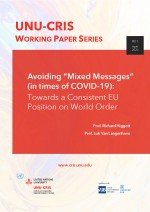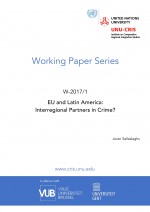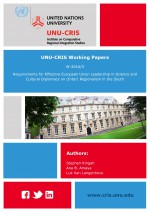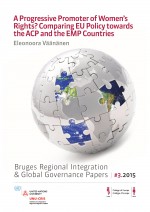Conflicting Role Conceptions: In Search of the European Union's Added Value for its Southern Neighbours
Many scholars have analyzed the role of the European Union (EU) in its southern neighborhood by looking at the EU’s policy documents and strategies. As such, it is often argued that the EU is at best a useful partner in democratic reform and at worst an unsuccessful ‘normative power’. However, very few studies have analyzed the EU’s role from the recipients’ point of view: the southern neighboring countries themselves. This paper adopts an ‘outside-in approach’ and explores what the southern neighborhood countries believe the EU should be or do. On the basis of a set of 15 interviews with diplomats from the region and an analysis of 50 newspaper articles from the region on the EU’s relations with its southern neighborhood, this paper seeks to reveal the EU’s real ’added value’ for its southern Mediterranean partners. To what extent does the EU’s own perceived role in its southern neighborhood match the role conception of those countries? Based on the three case studies of Algeria, Jordan and Egypt, the paper finds that there is a clear divergence in role conceptions between the EU and its southern partners. While the EU sees itself as a ‘force for good’ and promoter of norms and democracy in the southern Mediterranean region, the three countries primarily believe that the EU perceives itself foremost as a provider of security and stability in the region, while they primarily expect it to act as a reliable partner for economic cooperation.




